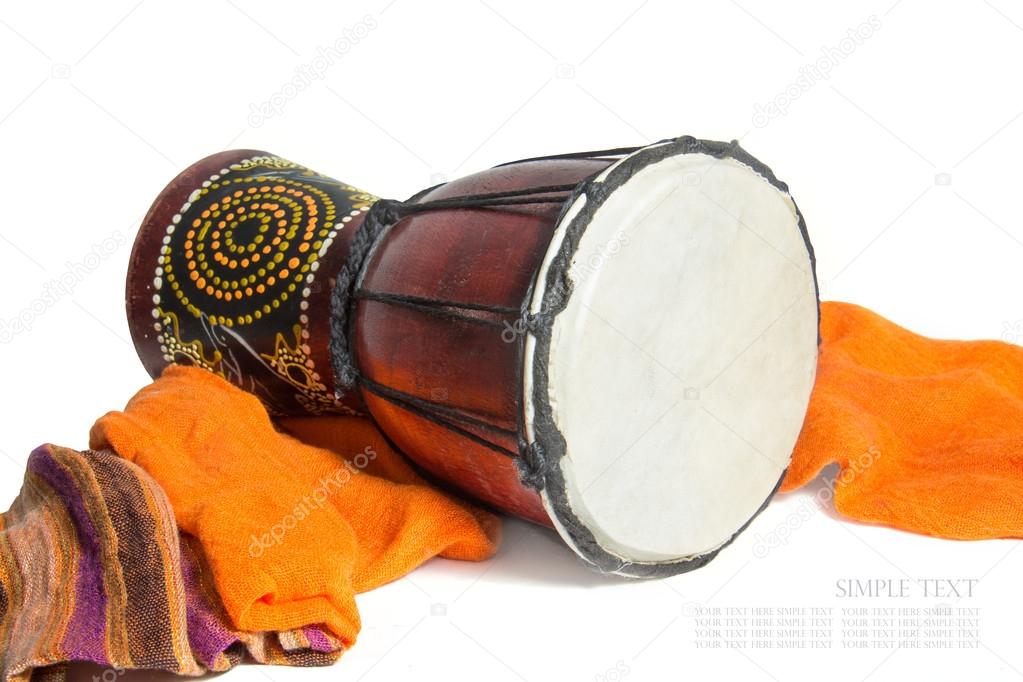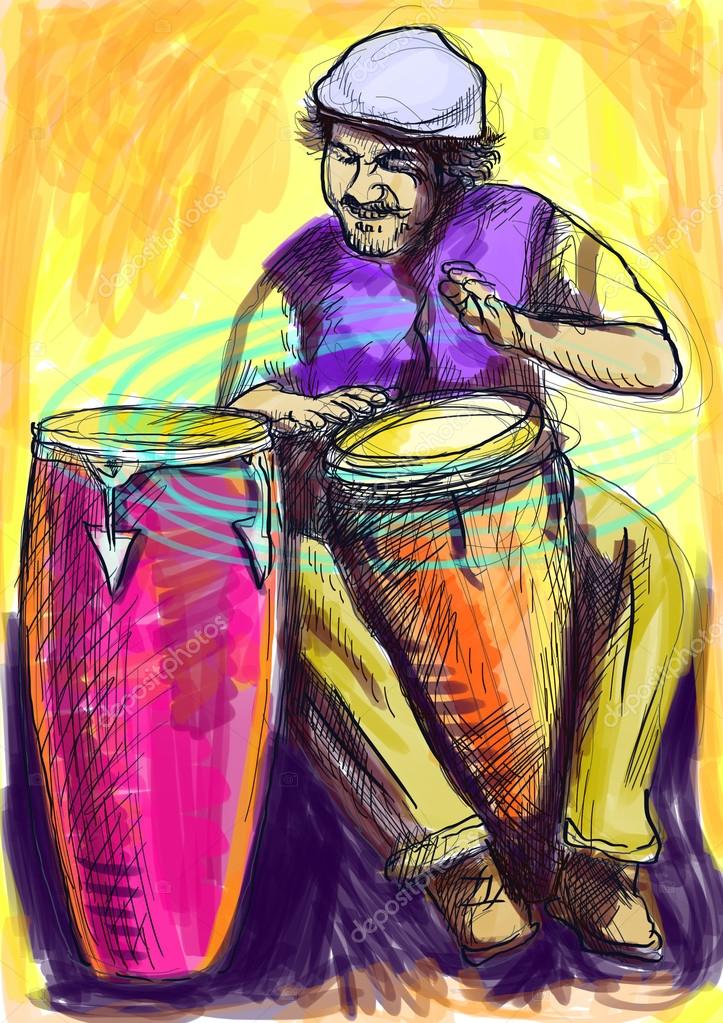5 minutos de español: Influencia de las lenguas africanas en el español latinoamericano / Influence of African languages on Latin American Spanish
 |
| Conga |
Hi, how are you doing?
Good morning, good afternoon or good evening depending on where you are and the
time you are listening to us.
In these 5 minutes of
Spanish in the middle of the week we are going to talk about another continent
that influenced a lot the Latin American culture and of course, what we are
interested in, which is the language.
We saw the
influence of native languages, especially Nahuatl, European and Arabic and now
another continent.
Yes, Africa, with the
massive arrival of Africans to work as slaves in America, a transculturation
took place. We have traces of Africa in the culture, music, way of being,
songs, religion and of course in the language.
What countries did
they come from?
From many regions,
especially from West Africa. On each ship they mixed their prisoners so that
they could not communicate, since each tribe had its own language. People did
not know where they were going and could not talk to anyone; they were tied up
and among strangers. The idea was to separate them and thus uproot them
completely.
Something
terrible! The conditions of the journey were totally inhuman.
Yes, we're not going to
talk about that today. In those harsh conditions, they tried to keep words as a
way of remembering where they had been violently uprooted from. And these words
were integrated into the Caribbean Spanish and Latin American Spanish in
general.
There are words
related to food, religious rites, music and musical instruments, medicinal
plants, in short, with what they communicated day by day
So we have:
Conga- musical instrument
Bacalo- A Fish Recipe (cod)
 |
| Bacalao |
Orisha – divinity
In the lexicon of Caribbean Spanish, there
are also voices from North Africa that came with the Spanish spoken by the
peninsulars but that had their origin in the African Arab languages.
Among them, those related to trade should be
highlighted, such as
metro -
ábaco - abacus
centímetro - centimeter
 |
| Centímetro |
vara. rod
With the masonry:
alberca - swimming
pool
azulejo - tile
Other ironic or
derogatory forms such as:
Matungo,-a: ugly,
lackluster person. Many times it refers to an old horse. Country people talk about their old matungo.
Others are very nice:
Tata: grandfather
Are you a tata?
Chevere: a willing
person, who can be counted on, friend, good-looking. This expression is used a
lot in Venezuela and Colombia.
It also influenced
certain structures such as double negation:
No, we are not going to
abandon the study of Spanish
The indistinct use
of aquí, acá and ahí as here.
Where is the book here?
In this very place, here.
In not
differentiating the c and the s, in African languages the s did not exist.
This is how we say
Cocina, and not as in Spain where the c has a softer sound
So, we have many
influences on Latin American Spanish. But like every language it is enriched
and changed day by day.
Thank you for reaching
this point in the podcast, share it and leave us a comment in our networks,
such as Facebook.
We are waiting for you at our new ideal
place to practice Spanish: SpanishUp2U; you can practice Spanish anywhere,
for example by the pool or in our Saturday workshop which is free as well.
And if you want to work
with a teacher in small groups, remember that we continue with the quarantine
promotion which is very, very convenient.
See you soon
Bye-bye
Hola, ¿qué tal? Buenos días, buenas tardes o
buenas noches según el lugar en el que estés y a la hora en la que nos escuches.
En estos 5 minutos de español a la mitad de la
semana vamos a hablar de otro continente que influyó mucho en la cultura latinoamericana
y por supuesto, en lo que a nosotros nos interesa, que es la lengua.
Vimos
la influencia de las lenguas nativas, en especial el náhuatl, de la europea y
del árabe y ahora otro continente…
Sí, el África, con la llegada masiva de
africanos a trabajar como esclavos en América, se produjo una transculturación.
Tenemos huellas del África en la cultura,
la música, la forma de ser, los cantos,
la religión y por supuesto en la lengua.
¿De
qué países llegaban?
De muchas regiones, especialmente del África
Occidental. En cada barco mezclaban a sus prisioneros para que no pudieran
comunicarse, pues cada tribu tenía su propia lengua. Las personas no sabían
dónde iban y no podía hablar con nadie, estaban atados y entre desconocidos. La
idea era separarlos y así desarraigarlos completamente.
¡Algo
terrible! Las condiciones del viaje totalmente inhumanas...
Sí, no
vamos a hablar de eso hoy. En esas condiciones tan duras, trataban de mantener vocablos como forma de
recordar el lugar de dónde los habían arrancado violentamente. Y estas palabras
se integraron al español caribeño y latinoamericano en general.
Hay
palabras relacionadas con la comida, los ritos religiosos, música e
instrumentos musicales, plantas medicinales, en fin, con lo que se comunicaban
día a día..
Así tenemos:
Conga- instrumento de música
Bacalao- Una receta de pescado (cod en ingles)
Orishá - divinidad
En el
léxico del español caribeño también se hallan voces pertenecientes al norte de
África que llegaron con el español hablado por los peninsulares pero que tenían
su origen en las lenguas árabes africanas.
Dentro de ellas hay que destacar las
relacionadas con el comercio como:
metro,-
ábaco, - abacus
centímetro, centimeter
vara. rod
Con la albañilería:
alberca, swimming
pool
azulejo, tile
 |
| Azulejos |
Otras formas irónicas o
despectivas como:
Matungo,-a: persona fea,
deslucida. Muchas veces se refiere a un caballo viejo. Las personas del campo hablan de su matungo
viejo.
Otras muy simpáticas:
Tata: abuelo ¿Eres un tata?
Chévere: persona dispuesta, con la que se puede contar, amigo, buena-onda.
Se usa mucho esta expresión en Venezuela y Colombia.
También
influyó en ciertas estructuras como la doble negación:
No, no vamos a abandonar el
estudio de español
El
uso indistinto de aquí, acá y ahí.
¿Dónde está el libro aquí?
En este mismo lugar, acá.
En
no diferenciar la c y la s, en las lenguas africanas no existía la s.
Así decimos Cocina y no como
en España que la c tiene un sonido más suave
Entonces,
tenemos muchas influencias en el español latinoamericano. Pero como toda lengua
se va enriqueciendo y cambiando día a día.
Gracias por llegar hasta
este punto en el podcast, compártelo y déjanos un comentario en nuestras redes,
como Facebook.
Los
esperamos en nuestro nuevo sitio ideal para practicar español:https://spanishuptoyou.com/https://spanishuptoyou.com/ puedes practicar español en cualquier lugar, por ejemplo junto a la alberca
o en
nuestro taller de los sábados que es gratuito también.
Y si quieres trabajar con un
profesor en grupos pequeños, recuerda que seguimos con la promoción decuarentena que es muy, pero muy conveniente.
Hasta pronto
Chau, chau



Comentarios
Publicar un comentario